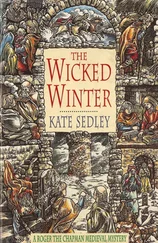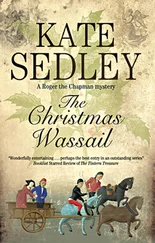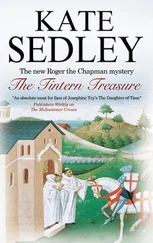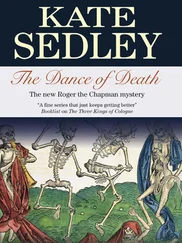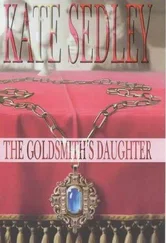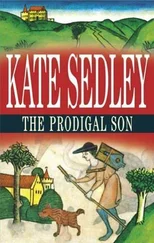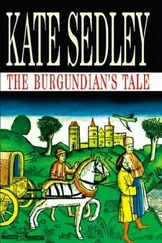Kate Sedley - The Midsummer Rose
Здесь есть возможность читать онлайн «Kate Sedley - The Midsummer Rose» весь текст электронной книги совершенно бесплатно (целиком полную версию без сокращений). В некоторых случаях можно слушать аудио, скачать через торрент в формате fb2 и присутствует краткое содержание. Жанр: Исторический детектив, на английском языке. Описание произведения, (предисловие) а так же отзывы посетителей доступны на портале библиотеки ЛибКат.
- Название:The Midsummer Rose
- Автор:
- Жанр:
- Год:неизвестен
- ISBN:нет данных
- Рейтинг книги:5 / 5. Голосов: 1
-
Избранное:Добавить в избранное
- Отзывы:
-
Ваша оценка:
- 100
- 1
- 2
- 3
- 4
- 5
The Midsummer Rose: краткое содержание, описание и аннотация
Предлагаем к чтению аннотацию, описание, краткое содержание или предисловие (зависит от того, что написал сам автор книги «The Midsummer Rose»). Если вы не нашли необходимую информацию о книге — напишите в комментариях, мы постараемся отыскать её.
The Midsummer Rose — читать онлайн бесплатно полную книгу (весь текст) целиком
Ниже представлен текст книги, разбитый по страницам. Система сохранения места последней прочитанной страницы, позволяет с удобством читать онлайн бесплатно книгу «The Midsummer Rose», без необходимости каждый раз заново искать на чём Вы остановились. Поставьте закладку, и сможете в любой момент перейти на страницу, на которой закончили чтение.
Интервал:
Закладка:
As soon as I opened the door, the pungent smell of horses greeted me, accompanied by the whinnying and shifting of two sets of hooves. Now, horses and I have never got on: they know I’m nervous of them and so they treat me with the contempt they think I deserve. Moreover, these two were obviously unsettled by the weather. I withdrew hurriedly, latching the door behind me.
The storm was at its height. I was soaked to the skin and my need for shelter was pressing. I was just screwing up my courage to take refuge with the animals after all, when I noticed a house standing a few yards nearer to the river bank than its attendant outbuilding. It was the ‘murder’ house, which had reportedly remained empty ever since the crime, but which was now showing a light in one of its downstairs windows.
At least, I thought I could see a light, and that was good enough for me. I dashed across the stretch of wind-bleached grass dividing the rocky promontory from the Saint Brendan’s track, to discover that there was indeed a candle flame glimmering behind the parchment panes of a small back window. I fought my way around to the front of the house, which faced the river, and hammered as hard as I could on the door.
Somewhat to my surprise, my knocking was answered almost immediately by a woman who held the door open wide and urged me inside. I needed no second bidding.
I found myself in a short, narrow passageway with a flight of stairs at the far end and, to my right, another door which led into a small, barely furnished parlour. Indeed, one of the things I remembered later was the all-pervasive smell of must and damp indicative of a house little used and from which light and air are largely excluded. But at the time, events moved so fast and so unexpectedly that I was unable to register anything with clarity.
‘We didn’t think you’d be here just yet,’ the woman said. She sounded edgy, nervous, as though the arrival of whoever it was she had mistaken me for was unwelcome. ‘We thought you would have sought shelter during this storm.’
I was vaguely aware of movements overhead. Someone was upstairs. This accounted for the ‘we’ she had referred to.
I pushed my dripping hair out of my eyes, propped my cudgel against the wall, dropped my pack beside it and tried in vain to brush the rain from the front of my sodden jerkin.
‘Look, I don’t know who you think I am,’ I began, but the woman ignored me.
As she brushed past to stare out of the window, I was aware of a pleasant-featured, strongly marked face and a well built figure, taller than average for a woman. Suddenly she uttered a sharp cry and beckoned me to join her.
‘Come and look at this!’ she whispered urgently. ‘Hurry!’
Bewildered, I followed her to the window and peered through the dirty parchment which showed me nothing beyond the fact that it was coated with the grime of many years.
‘What is it?’ I demanded irritably. ‘There’s nothing there. And if there were, you couldn’t see it through all this muck.’
The woman had left my side and was now behind me — again, something I realized later. Much later.
‘There’s something you must understand.’ I tried again. ‘I’m not-’
I can’t even remember feeling the blow with which she felled me.
I had no idea how long I had been unconscious, but guessed it could not have been for any length of time; perhaps no more than a minute or two. I experienced no confusion of thought as I came to my senses, nor any difficulty in recalling what had happened or where I was.
I was lying where I had fallen, the dust on the floor tickling the back of my nose and throat and making me want to sneeze. I controlled the impulse, realizing that my best hope of eventually overpowering my assailant rested in the element of surprise. She probably thought she was stronger than she really was, and would pride herself on laying me out for some considerable time. But she would soon learn her mistake.
Meanwhile, I had a throbbing headache to contend with and, worse than that, the even greater pain of wounded vanity, for I had been struck down with my very own cudgel! Cautiously opening one eye, it was the first thing I saw, lying a couple of feet or so away. I cursed myself for every kind of a fool. It was all very well arguing that I could not possibly have foreseen what was coming; that I had no reason to suspect that danger lurked. But I had guessed from the start that I had been mistaken for someone else. That, if no other reason, should have put me on my guard. Furthermore, the unfurnished appearance of the house, coupled with the smell of damp and decay, should have alerted my senses to the fact that something was amiss. Instead, I had been preoccupied with my own discomfort. It served me right.
The storm seemed to have passed, in the abrupt way that such summer squalls so often do. The rain had ceased drumming against the window and a ray of sunshine was once more struggling to illumine the filthy panes. I could hear seagulls noisily foraging for food along the mudflats of the Avon.
Someone else had come into the room. Another woman. Presumably the person who had earlier been moving about upstairs. Opening my eyes the merest slit, I was just in time to see the hem of a blue brocade gown sweep past me and, beneath, the flash of red leather shoes. This was not my attacker, who was wearing a gown of much plainer, darker material, although I had had little opportunity to register it in any detail. But it had definitely not gleamed with the richness of brocade, of that I was certain. Who, then, was this?
Then a man’s voice spoke from somewhere behind me. Whoever he was, he must have entered the house while I was unconscious.
‘What are we going to do with him? Toss him in the river?’
It dawned on me with sickening clarity that I was in a far more serious situation than I had previously imagined. It was not just one woman I had to deal with. It was not even two. It was three people, one of whom was male and might be armed.
The thought had barely entered my aching head when he spoke again, confirming my worst fears.
‘I’ll use my knife. Finish him off.’
There was something foreign about his speech, some peculiarity that I could not quite place. French? Breton? Cornish? I didn’t think so, but what the accent was, I was unable to say. In any case, there was no time for such considerations. I was in imminent danger of being murdered.
The first woman moved back into my line of vision and I hastily closed my eyes, but not before I had glimpsed several inches of brown sarcenet skirt and the end of a black leather girdle tipped with a silver tag studded with turquoises. Whoever she was, she was a woman of substance. Possibly also a woman of sense and education. I trusted that she was about to speak up in my defence.
‘I suppose that might be the safest way to get rid of him.’
So much for the gentleness and mercy of the opposite sex! I should have known better; women can be far more ruthless than men. I tensed my muscles ready to sell my life as dearly as possible. I would not go under without a fight …
‘The door was unlatched, so I just walked in,’ announced yet another male voice. This one had an Irish lilt to it, the soft brogue of southern Ireland, around Waterford. I had heard it often during my years of living in Bristol.
There was an astounded silence. I can recognize total amazement even when my head is pounding fit to burst.
‘Who … Who are you?’ my assailant quavered as soon as she managed to find her tongue.
‘Who do you think I am? I’m Eamonn Malahide of course. Who else are you expecting?’
Once more, I let my eyes flicker open. I could safely wager that no one would be looking at me.
Where there had been brown sarcenet and the hint of a shapely leg beneath, was now a huge pair of feet encased in worn but substantial leather boots with thick, hobnailed soles — excellent, I surmised, for kicking people to the ground and, afterwards, trampling them underfoot. Above the boots, a stout pair of legs were shrouded in thick frieze breeches such as seafaring men wear. I dared raise my eyelids no further for fear of revealing that I was awake, but the two hands dangling loosely by the man’s side were as big as shovels, and one had a ship pricked out in woad on the back of it, with the word Clontarf underneath.
Читать дальшеИнтервал:
Закладка:
Похожие книги на «The Midsummer Rose»
Представляем Вашему вниманию похожие книги на «The Midsummer Rose» списком для выбора. Мы отобрали схожую по названию и смыслу литературу в надежде предоставить читателям больше вариантов отыскать новые, интересные, ещё непрочитанные произведения.
Обсуждение, отзывы о книге «The Midsummer Rose» и просто собственные мнения читателей. Оставьте ваши комментарии, напишите, что Вы думаете о произведении, его смысле или главных героях. Укажите что конкретно понравилось, а что нет, и почему Вы так считаете.

